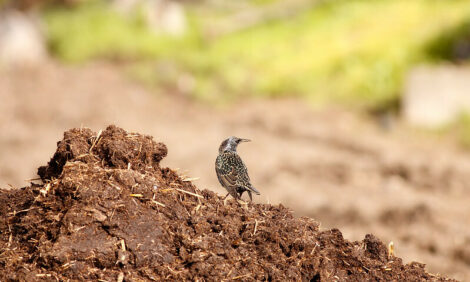



Health Alert for Murray Valley Encephalitis
AUSTRALIA - People planning to head west and south of the state over the holiday break are warned to take extra precautions and protect themselves against mosquitoes following the detection of the Murray Valley Encephalitis (or MVE) virus in New South Wales.The MVE virus has been detected in sentinel chickens located near Leeton, Hay and Moama in the state’s south, and also in the Macquarie Marshes in the west approximately 100km from Brewarrina, Walgett, Nyngan and Coonamble townships.
Sentinel chicken flocks act as a warning system for human infection by being regularly monitored for viruses that mosquitoes can transmit to people and cause illness.
Because MVE and other more common mosquito borne infection are prevalent in summer and autumn, everyone should take simple measures to avoid mosquito bites.
State Director of Health Protection, Jeremy McAnulty, says the latest detections should serve as an important reminder for people to protect themselves.
Dr McAnulty said: "Positive MVE findings in chickens are relatively rare in NSW. The important message is to avoid mosquito bites and be alert to any symptoms.
"The current area of risk for MVE extends in regions west of the Great Dividing Range and is likely to be highest around rivers and wetlands, especially along the Murray, Darling, and Paroo Rivers and their tributaries and in recently flooded areas in western NSW.
"The increased risk of human cases is related to increasing numbers of mosquitoes that carry the virus and can transmit it to birds and occasionally people. Mosquito numbers increase with warmer temperatures and rainfall.
"We saw MVE activity last summer and autumn in sentinel chickens and in mosquitoes, and two human cases of MVE infection were detected in NSW, but there have been no cases reported so far this summer.
"Both cases were in people who lived near the Macquarie Marshes and both recovered.
"While MVE is relatively rare, and most people will not develop symptoms, it is a serious mosquito-borne disease.
"In mild cases, symptoms of MVE include fever, headache, nausea and vomiting and muscle aches.
"In more severe cases symptoms can include neck stiffness, lethargy, drowsiness, confusion, delirium, tremors, neurological problems and coma in severe cases.
"People with these symptoms should immediately seek medical assistance.
"In young children, fever might be the only early sign, so parents should see their doctor if concerned, and particularly if their child has convulsions, drowsiness, floppiness, irritability, poor feeding or general distress."
Mosquitoes also carry other human diseases including Ross River virus, Barmah Forest virus and Kunjin viruses that can cause fever, rash and joint pains.
The MVE virus is transmitted by infected mosquitoes which breed in flooded, grassy and swamp areas and around rivers and waterways. The mosquito is especially active around dawn and around sundown, with a peak in the first two hours of the night.
Avoid being bitten by mosquitoes. Mosquitoes that carry the virus are usually most active in the hours after sunset and again around dawn
There is no specific treatment for these viruses so prevention depends on avoiding mosquito bites, especially in the summer and autumn months when infections peak.
Further Reading
| - | You can view the featured article explaining Murray Valley Encephalitis (MVE) by clicking here. |








